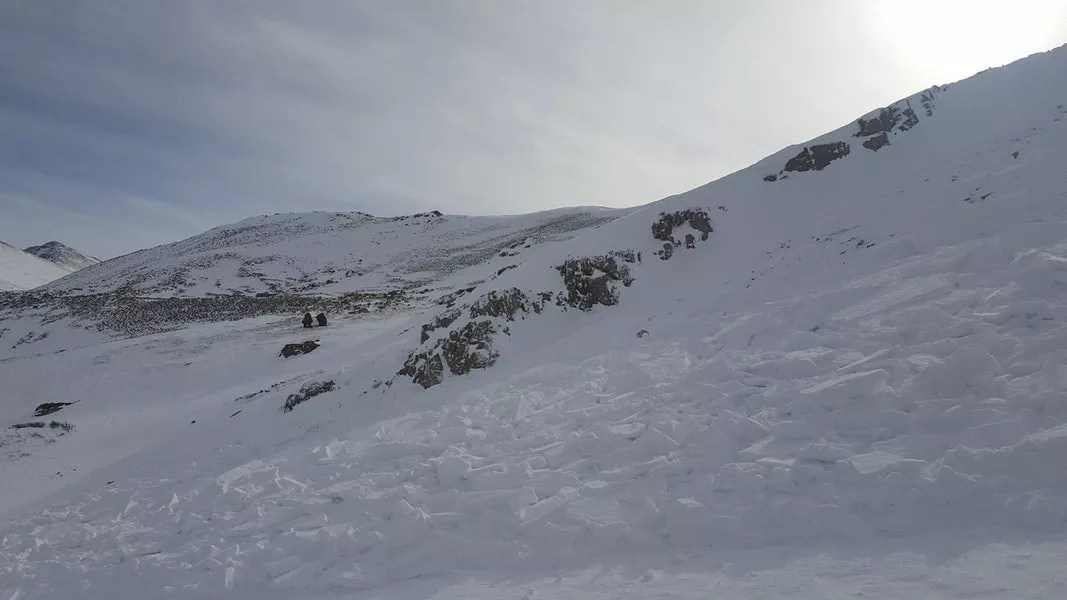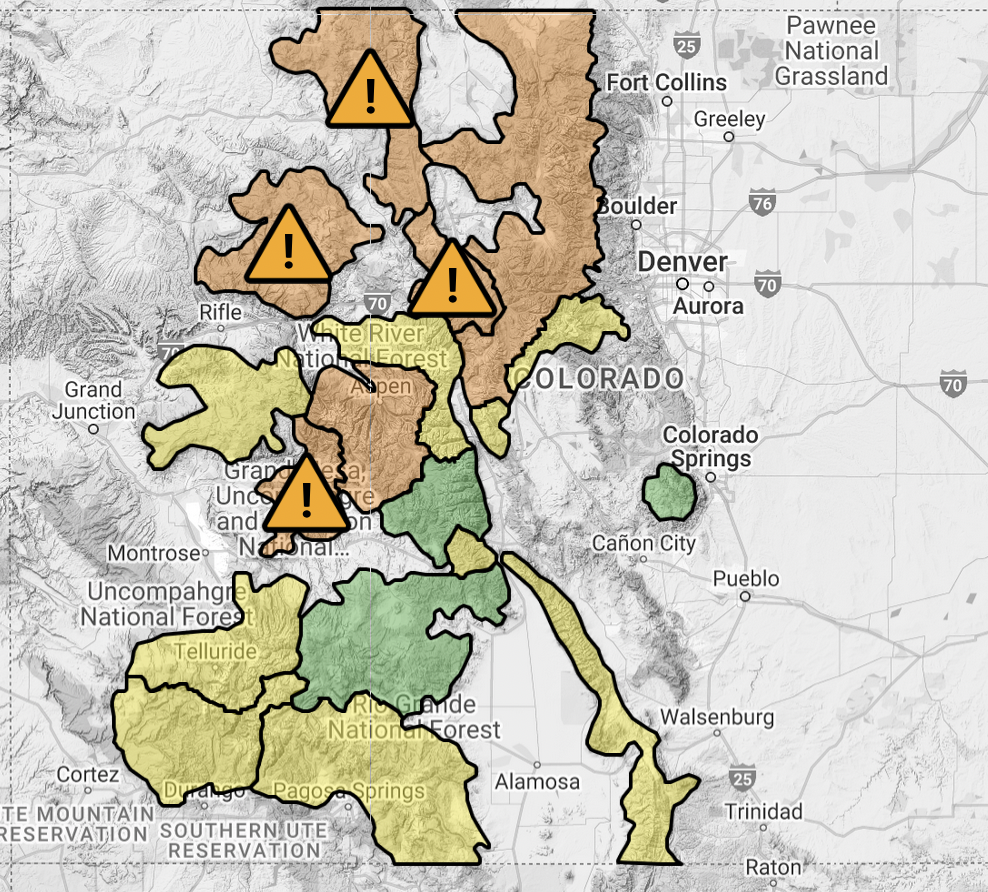

Audio By Carbonatix
There is significant avalanche danger across the Colorado mountains from now until New Year’s Day, according to the Colorado Avalanche Information Center; the CAIC rates avalanche danger in the state as “high” for the next three days.
Snowstorms are predicted to roll in throughout the weekend, bringing high winds with them. Those storms, combined with a weak existing snowpack, will make it easy to trigger avalanches in Colorado’s backcountry. There were four active avalanche watch zones as of Friday, December 27.
“We’re particularly worried because we haven’t seen much new snow in a few weeks and our snowpack is now exceptionally weak,” CAIC Director Ethan Greene says in an announcement of the danger. “People will be excited about the new snow, have time off to enjoy the mountains and, at the same time, the avalanche danger will be the highest we’ve seen in a month.”
Greene and the CAIC don’t want New Year’s celebrations to take a bad turn, so the organization has released Special Avalanche Advisories for parts of the state that are designed to account for the possibility that holiday weekend travel could put an increased number of people at risk.
The Colorado Department of Transportation predicts these storms will bring traffic to the Interstate 70 mountain corridor, impacting skiers. Check COtrip.org for traffic and road closure updates.
According to the CAIC, the northern and central mountains will see the most snow, and so will have the highest level of avalanche danger, starting with the area around Steamboat Springs that will reach high danger levels by Friday night. More areas will become dangerous through the weekend, the center predicts.
Even after the weekend snow finishes falling – which will decrease the likelihood of naturally occurring avalanches – the snow conditions will still exist for human-triggered slides.
“We’ll see natural avalanche activity this weekend, and people will be able to trigger avalanches large enough to seriously injure or kill them through the middle of next week,” Greene adds.
Backcountry travel is not recommended in areas where avalanche danger is high. Check the CAIC website before you travel for the most updated information.
“The CAIC strongly advises all backcountry travelers to check the avalanche forecast regularly and adjust their plans accordingly,” the CAIC notes in its warning. “Always carry proper avalanche safety gear, including a transceiver, probe, and shovel, and know how to use them. Avoid avalanche-prone terrain during periods of heightened danger.”
Here is the December 27 avalanche danger map:

Every exclamation point represents an avalanche watch in Colorado.
Colorado Avalanche Information Center